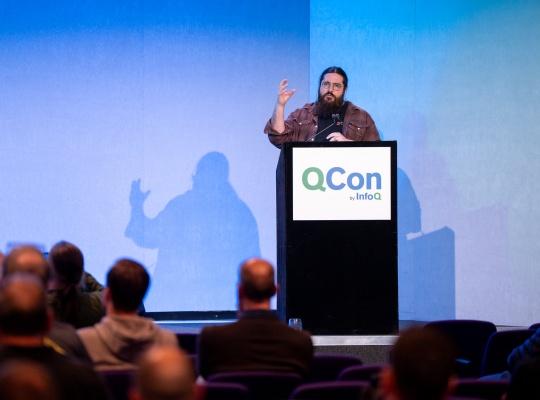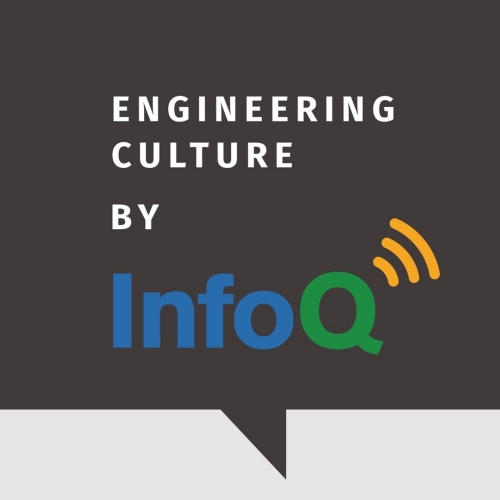Codetown
Codetown ::: a software developer's community
OrlandoJUG - 6-9PM Feb 20 at DeVry with Howard Lewis Ship on Clojure
Event Details
Time: February 20, 2014 from 6pm to 9pm
Location: DeVry University
Street: 4000 Millennia Blvd, Room 119
City/Town: Orlando
Website or Map: http://www.codetown.us/group/…
Phone: 321-252-9322
Event Type: meeting
Organized By: Michael Levin
Latest Activity: Feb 20, 2014
Event Description
Join us for a Clojure talk by Tapestry author Howard Lewis Ship. Thanks to Consultis for Pizza and Cambridge Web Design for organization.
Here's a little about what Howard plans to cover:
"Clojure is a fascinating new(er) programming language, created by Rich Hickey, that combines the ubiquity and performance of Java with the power and expressiveness of Lisp. Clojure excels at interesting problems, especially those involving concurrency, but can also freely interoperate with standard Java. Clojure developers quickly become passionate about this odd little hybrid: it's easy to learn, yet deeply powerful, and is at the heart of a vibrant and exciting eco-system of tools and libraries."

Howard Lewis Ship, the creator and lead developer for the Apache Tapestry project, is respected in the Java community as an expert on web application development, dependency injection, Java meta-programming, and developer productivity. He has well over twenty years of full-time software development under his belt, with over fifteen years of Java. He cut his teeth writing customer support software for Stratus Computer, but eventually traded PL/1 for Objective-C and NeXTSTEP before settling into Java. For the last year, Howard has been working full time in Clojure as well.
Howard is a frequent speaker at JavaOne, NoFluffJustStuff, ApacheCon, and other conferences, and the author of "Tapestry in Action" for Manning (covering Tapestry 3.0).
Howard is an independent consultant, offering training, mentoring, and project work in Tapestry as well as other interesting technologies such as Clojure and AngularJS. He lives in Portland, Oregon with his wife Suzanne, and his children, Jacob and Olivia.
http://howardlewisship.com/
Comment Wall
Comment
-
Comment by Justin Griffin on February 20, 2014 at 1:46pm
-
Chris Wasser is bringing some adaptors, in case we need them.
-
Comment by Michael Levin on February 13, 2014 at 2:20pm
-
There may be a cable to fit your Mac but bringing an adaptor might be safest!
-
Comment by Howard M. Lewis Ship on February 13, 2014 at 11:28am
-
Had a good run through of this talk last night; I expect to make it even better for next Thursday.
One issue is that I left my mini-display port to VGA cable behind in Portland; we cobbled something together using screen sharing. What kind of projector and cable do you have at the Orlando JUG? If necessary, I can run out a purchase the right cable.
Notes
Welcome to Codetown!
 Codetown is a social network. It's got blogs, forums, groups, personal pages and more! You might think of Codetown as a funky camper van with lots of compartments for your stuff and a great multimedia system, too! Best of all, Codetown has room for all of your friends.
Codetown is a social network. It's got blogs, forums, groups, personal pages and more! You might think of Codetown as a funky camper van with lots of compartments for your stuff and a great multimedia system, too! Best of all, Codetown has room for all of your friends.
Created by Michael Levin Dec 18, 2008 at 6:56pm. Last updated by Michael Levin May 4, 2018.
Looking for Jobs or Staff?
Check out the Codetown Jobs group.
InfoQ Reading List
Rspack Releases Version 1.7: Final 1.x Update Before 2.0 Transition

Rspack 1.7 has launched, enhancing performance and plugin compatibility as it prepares for a major version transition. Key features include improved SWC plugin compatibility, native asset importing as bytes, and default lazy compilation for dynamic modules. With performance gains reported up to 80%, Rspack offers a faster, Rust-based alternative to webpack while maintaining API compatibility.
By Daniel CurtisPresentation: WASM Components are a FaaS' Best Friend

Laurent Doguin shares why Wasm’s cold-start performance and security model make it the ideal FaaS runtime. He discusses the WebAssembly Component Model for polyglot interoperability and explains how to build distributed, provider-based architectures using CNCF wasmCloud and NATS. Ideal for architects looking to scale "scale-to-zero" infrastructure without the overhead of heavy containers.
By Laurent DoguinArticle: Autonomous Big Data Optimization: Multi-Agent Reinforcement Learning to Achieve Self-Tuning Apache Spark

This article introduces a reinforcement learning (RL) approach grounded in Apache Spark that enables distributed computing systems to learn optimal configurations autonomously, much like an apprentice engineer who learns by doing. The author also implements a lightweight agent as a driver-side component that uses RL to choose configuration settings before a job runs.
By Hina GandhiPodcast: The Technical Founder's Path: Code, Leadership, and Balance

In this podcast, Shane Hastie, Lead Editor for Culture & Methods, spoke to Trisha Ballakur about transitioning from coder to startup CEO, balancing technical leadership with business development, and avoiding burnout on the journey.
By Trisha BallakurMicrosoft Adds Custom Copilot Agents for .NET Developers with C# and WinForms Experts

Microsoft and GitHub have expanded the Copilot ecosystem with the first .NET-focused GitHub Copilot custom agents, designed to improve productivity and code quality for C# and Windows Forms developers. The announcement, part of the broader Copilot custom agents’ rollout, introduces two purpose-built agents: C# Expert and WinForms Expert in the form of agent instruction Markdown files.
By Edin Kapić
© 2026 Created by Michael Levin.
Powered by
![]()
RSVP for OrlandoJUG - 6-9PM Feb 20 at DeVry with Howard Lewis Ship on Clojure to add comments!
Join Codetown